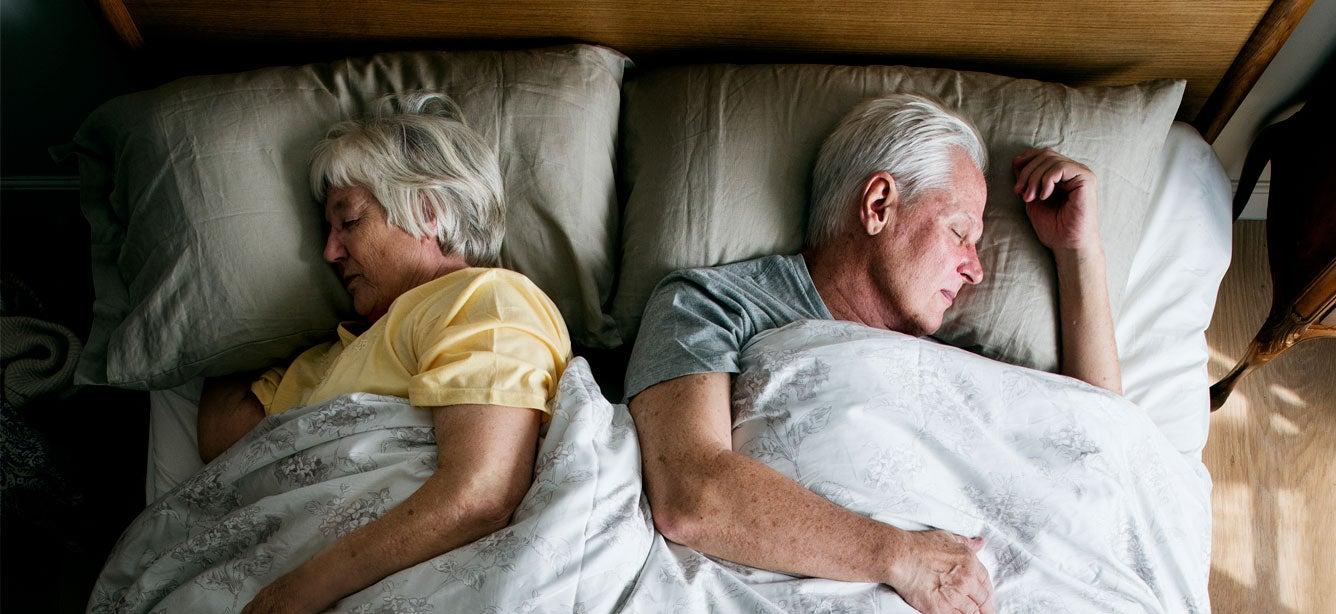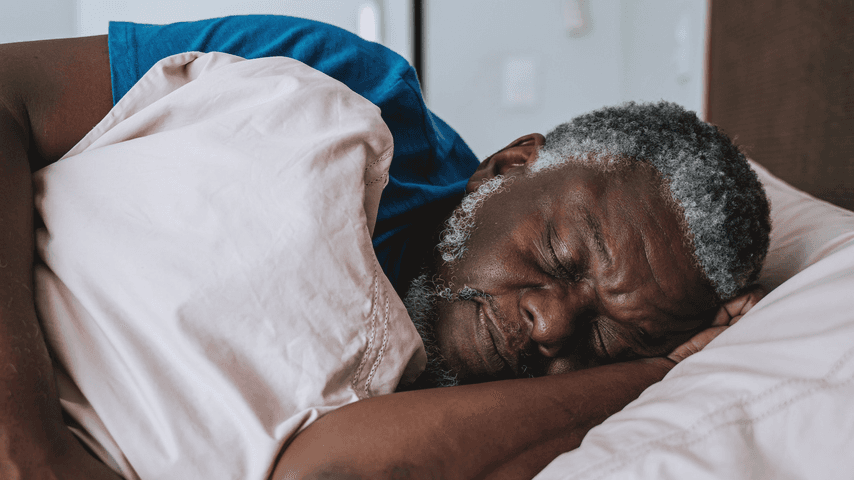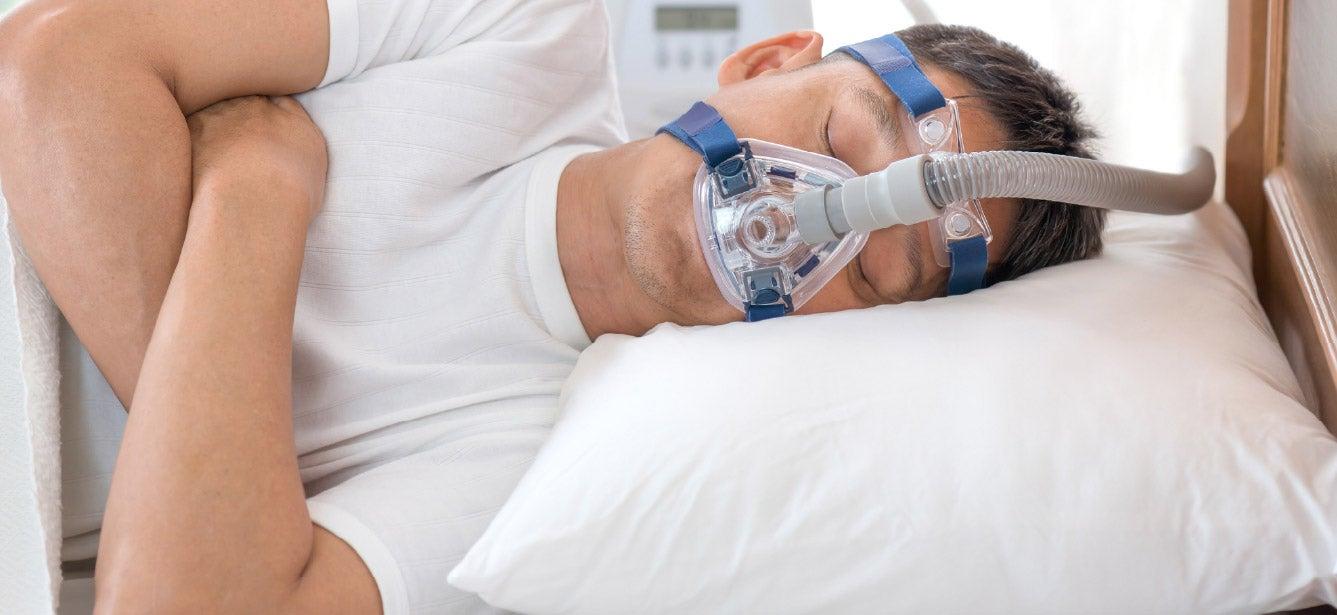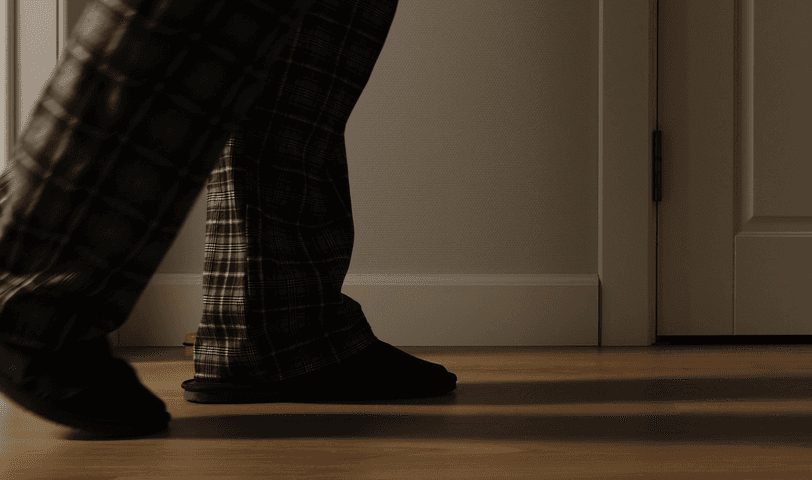
Unhealthy sleep can interfere with daily activities and is associated with lower quality of life and risk of chronic disease, such as diabetes and obesity. There is a connection with poor sleep and unhealthy weight gain because sleep regulates hormones that tell your body when you are hungry and signals when you feel full. This may cause you to eat more, and reach for unhealthy food choices without thinking ahead about good nutrition throughout the day.
Getting enough sleep is also important for mental health, a good immune system and controlling emotions. Sleepiness in the daytime is associated with higher falls risk, injuries, and accidents. People with sleep disturbances may have slower response times. If you have trouble getting enough sleep, a mattress for back pain could help.
How much sleep do I need?
Older adults need a similar amount of sleep as all adults—7 to 9 hours on average each night. Around 30-39% of older adults report having some difficulty sleeping, according to a survey by the National Sleep Foundation. As you age, it is common to take longer to fall asleep and have more awakenings in the night. Difficulty staying asleep for the entire night is ok if you can fall back to sleep, but quality and quantity is important.
Contributors to poor sleep
There are many reasons for not getting the high-quality sleep you need. Feeling sick or being in pain can make it hard to sleep. Some medicines can keep you awake. And the experience of losing a loved one is another factor that may contribute to sleep problems.
If you are feeling excessively sleepy in the daytime, this could be a sign of obstructive sleep apnea (OSA), cognitive impairment, or cardiovascular issues. With respect to OSA, weight on the upper chest and neck contributes to blocking the flow of air. Drowsiness and snoring are the most common complaints, but some older adults may notice gasping, wake up with a dry mouth or morning headache. The prevalence of OSA increases with age in adults and can lead to poor quality of life, an increased risk of motor vehicle accidents and more.1 It’s also associated with obesity, and experts say it can be part of a vicious cycle in which the sleep deprivation it causes can lead to even more obesity, which in turn aggravates the condition.
Overeating and eating too much of certain foods can also cause sleep problems. For example, meals with low fiber and high amounts of added sugars and saturated fat, which are found in butter, cheese, red meat and other animal-based foods, have been related to interrupted sleep.2
If you think you have sleep apnea, another chronic condition or suspect that your current medication is interfering with your sleep, you should talk to your health care provider. You may benefit from a CPAP machine.
How to fall asleep
No matter what the reason for poor sleep, there are foundational steps that experts recommend you can take as part of living a healthy lifestyle and improve your sleep. Here are some practices to consider:
- Reserve your bedroom as a place for sleep. Keep the temperature comfortable and keep out TVs, tablets, smart phones, and computers. The goal is to associate the bedroom and bed with sleep and intimacy. Avoid eating or working in your bedroom.
- Don’t worry if you wake up during the night. If it takes more than 15 minutes to fall back to sleep, get out of bed and try reading or listening to soft music for a little while until you feel sleepy. Then try again.
- Keep a ritual for winding down before going to bed. Limit light exposure from digital technology late in the evening and refrain from social media or any type of upsetting news coverage, too. Try journaling before bed or listening to relaxing music.
- Limit certain foods and drinks before bedtime. Alcohol and sleep aids are not good ideas because they can be more likely to cause sleep disturbances. Avoid large, heavy meals before bed and stay away from caffeine in the afternoons which can stay in your system for as long as 10-12 hours and keep you awake at night.
- Engage in daily activities that nourish you. Connect and visit with family and friends. When it is not possible to have in-person visits due to social distancing practices, reach out using the telephone and through video calls, or send emails, cards and hand-written letters.
- Be physically active every day and get outside. Exercise early in the day to bolster your mood and help you get the natural sunlight you need, signaling to your brain that it is daytime and establish a rhythm of your sleep and wake cycle.
Give these practices a try and stick with it for a while. Over time you may notice that improving sleep can positively impact your health and well-being. Lastly, if you are in the market for a new bed, you may want to consider purchasing one of what we rated as the best mattresses or an adjustable bed, which also can help improve sleep quality.
Sources
1. Garvey, J. F., et al. Epidemiological aspects of obstructive sleep apnea. Journal of Thoracic Disease. May 2015. Found on the internet at https://www.ncbi.nlm.nih.gov/pmc/articles/PMC4454867/
2. St-Onge MP, et al. Fiber and saturated fat are associated with sleep arousals and slow wave sleep. Journal of Clinical Sleep Medicine. January 2016. Found on the internet at https://pubmed.ncbi.nlm.nih.gov/26156950/



